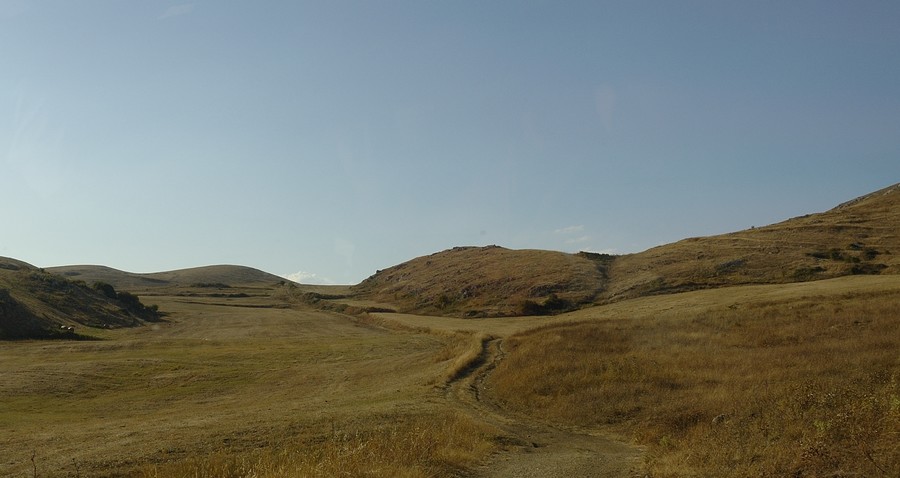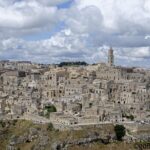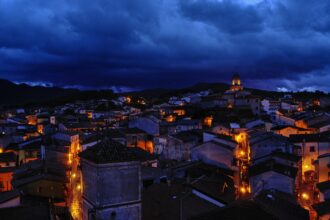Sant'Angelo le Fratte, also known as "The town of the cellars", is a small and fascinating village in the province of Potenza located at the foot of theMonte Carpinetothat dominates theMelandro Valley. This guide will help you understand what to visit and what to see in Sant'Angelo.
The houses and alleys of the historic center are embellished with splendidmurals and from marble sculpturesisbronzewhich represent the history, the uses and customs of the small Lucanian village. But the largest point of interest of Sant'Angelo, inBasilicata, are undoubtedly thewineries, ancient buildings obtained directly among the rocky clusters, which form an extraordinary and suggestive path between them.
From 1430 to 1818, following the destruction of the nearby city ofSatriano, Sant'Angelo le fratte was chosen by the then bishopAndrea da Venosaas a provisional bishopric. This event was vital for the demographic, economic and cultural growth of the village.
The hypotheses existing on the name of the country are two: the first, less quoted, claims that the name was originally "Castrum Sancti Angeli de Fratis", Given the belonging to the Church. The second and most accredited hypothesis, however, is connected to the strong devotion toArchangel Michael, Patron of the country. The appellation "the Fratte"It would also derive from the passive past participle from the Latin verb"frango"(Spacca), in reference to the fact that the village was born under the rocky rift of Mount Carpineto.
What to see in Sant'Angelo Le Fratte: Places of interest
There are several things to visit in Sant'Angelo Le Fratte: we have enclosed them in a list that will allow you to better choose what to do in the splendid village of the Melandro.
1. The murals of Sant'Angelo Le Fratte
The alleys and streets of Sant'Angelo Le Fratte are colorful and illuminated by the approximately 150murals Made since 1995 by several Italian and international artists. These works tell the story, the uses and customs of this small community, not surprisingly the recurring theme of the paintings is theharvestof wine, peculiarity of the village. Together with Satriano and Savoy of Lucania, Sant'Angelo is part of the "Valle more painted in Italy".
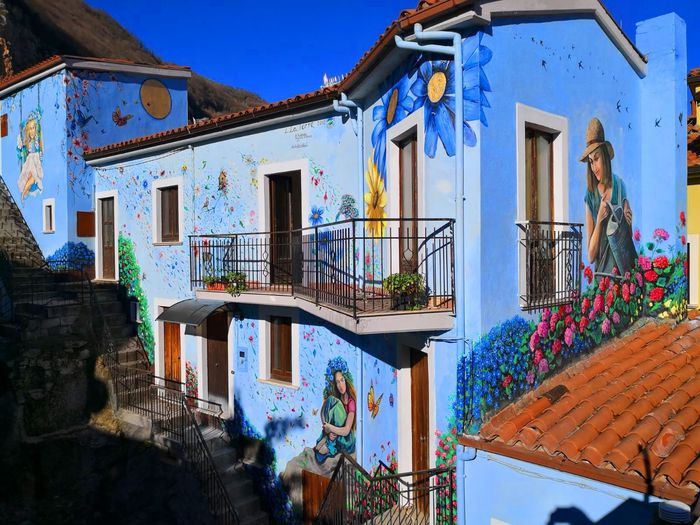
2. The cellars of Sant'Angelo Le Fratte
In the area of Sant'Angelo Le Fratte called "Dark“, We come across the characteristic cellars, obtained directly in the rock of the mountainCarpineto. These premises, which form a path between them, have always been used to preserve wine, cheese and salami. Every year, around the middle of August, the cellars' route hosts the famous event "The open cellars of Sant'Angelo Le Fratte".
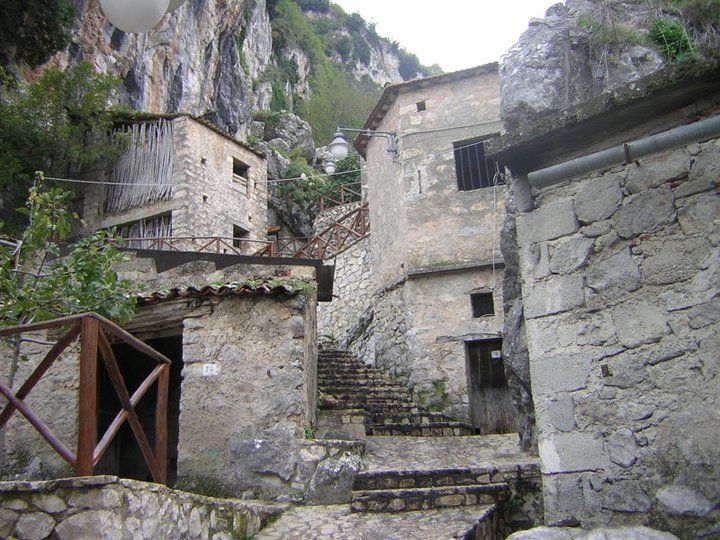
3. Palazzo Galasso, seat of the Town Hall
In the historic center of Sant'Angelo Le Fratte stands the building complex calledGalasso palace, which dominates the square overlooking the Melandro valley. The building, built in the early nineteenth century and subsequently renovated, was later donated by the Galasso family to the Municipality. In fact, today, it turns out to be the seat of the Town Hall.
In the complex of the building theCivic Pinacoteca "Michele Antonio Saverio Cancer", inaugurated on 5 August 2017, and containing243 worksby the artist from Sant'Angelo.

4. Villa Giachetti
In the district ofSanta Maria di FellanaWe can admire the splendidVilla Giachettiwith its votive chapel. In the historic building there is a cycle offrescoesWith Rococo decoration dating back to the 18th century.
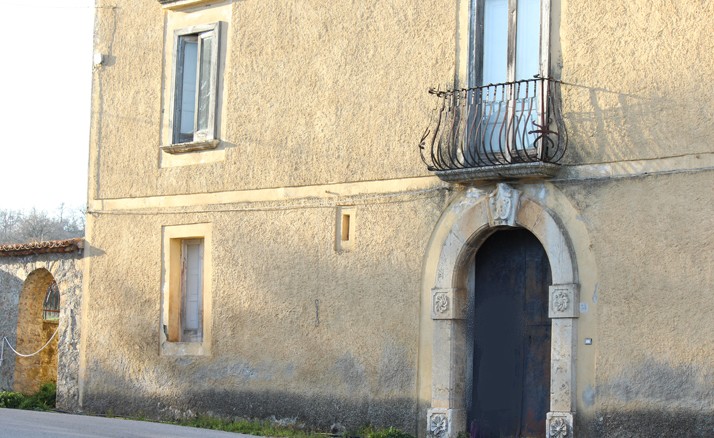
5. Mother Church of Sant'Angelo Le Fratte
Among the things to see in Sant'Angelo Le Fratte there is undoubtedly the splendidMother Church, today called Santa Maria ad Nives, originally from the Sacred Heart and San Michele, then Santa Maria Maggiore. Reconstructed following the earthquake of 1694, it has an interior with three Latin cross naves in which you can admire the largest altar in golden wood with floral ornaments, a crucifix from 1726 and some statues of the eighteenth century, including that of thePatron Saint Michael the Archangel. Of great value are the works depicting theOur Lady of the Rosary and the Nativity, attributed to the Lucanian painter of Satrian originsGiovanni De Gregorio, called "Il Pietrafesa". In the bell tower of the church, a 18th century bell belonged to the old convent of the friars Minor is preserved.
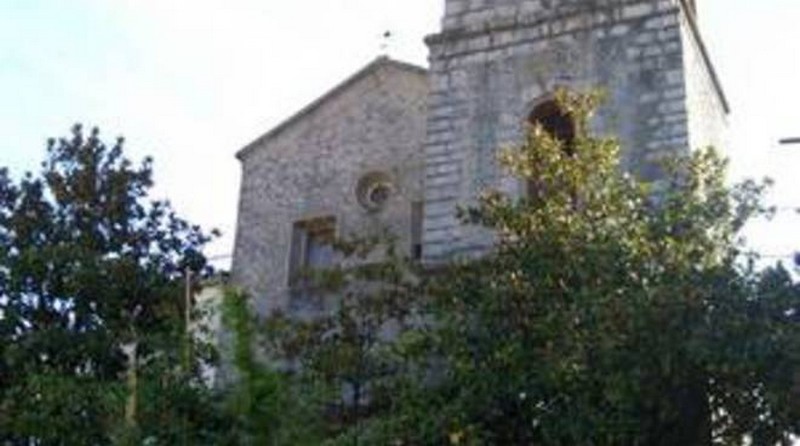
6. Marble and bronze sculptures
Wandering through the alleys of the Lucanian village it will not be difficult to come acrossbronze statuesormarble, depicting peasant and popular life scenes from the past. In 2017 one was inauguratedstone statueof the patron San Michele Arcangelo about six and a half meters high and located in the Croce, area overlooking the town and the entire valley.
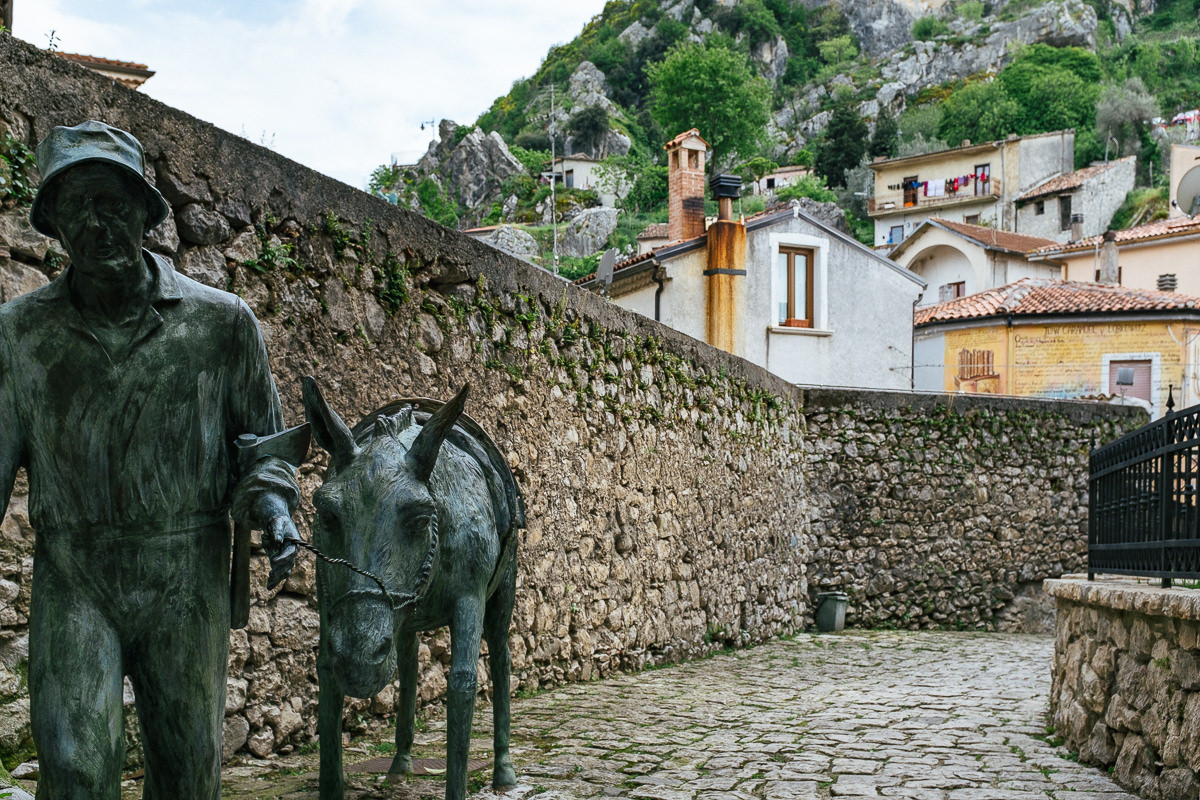
7. Field of Venus and the Franciscan hermitage
Located on a hill that dominates the village, the suggestive location ofField of VenusIt is a splendid expanse of wheat fields, barley, wheat and fodder, where silence and tranquility are the masters. Here stands theFranciscan hermitage, unique in southern Italy, with the splendid church full of paintings and bas -reliefs of Christian inspiration.
